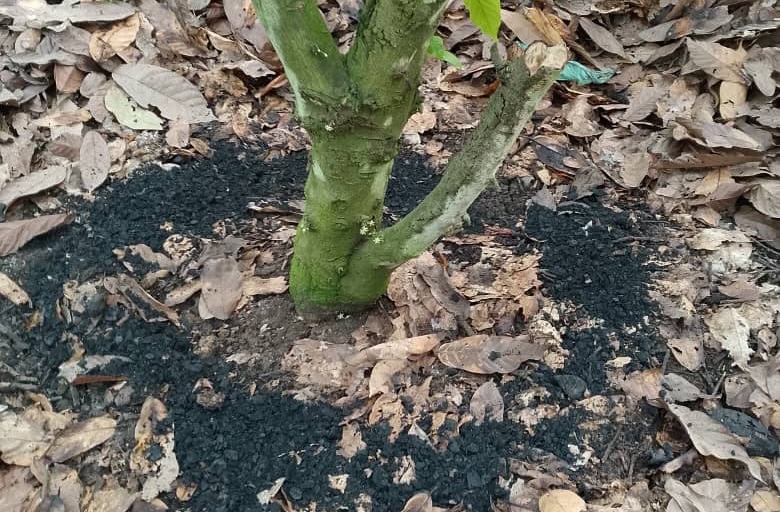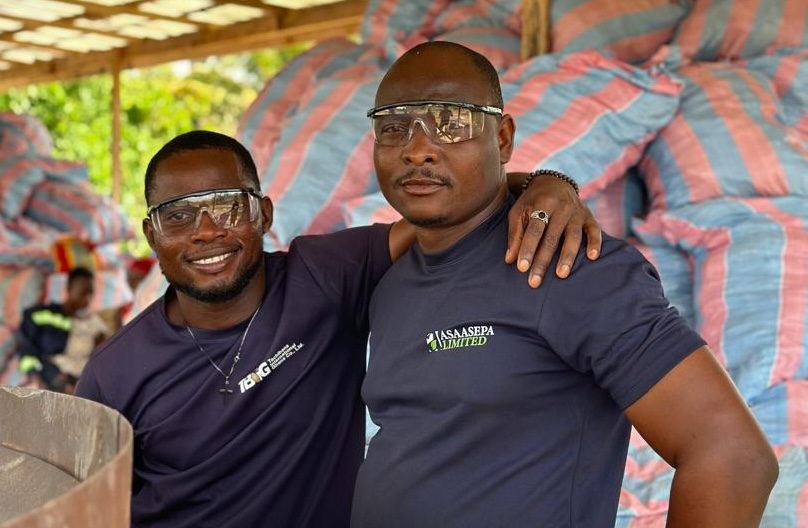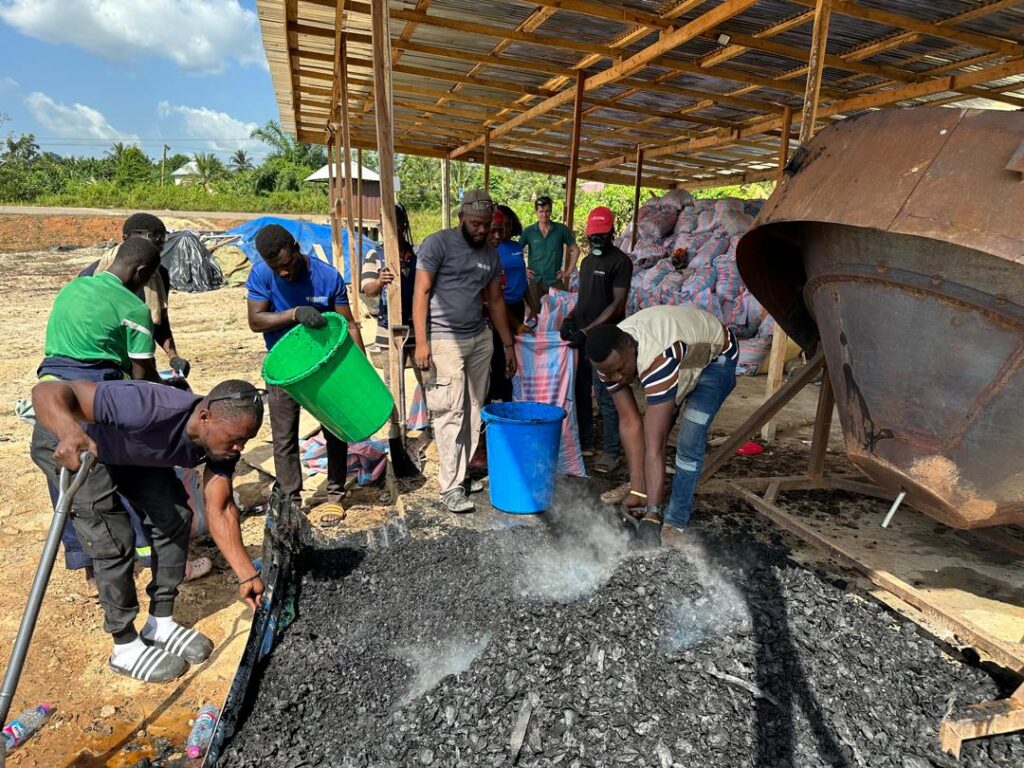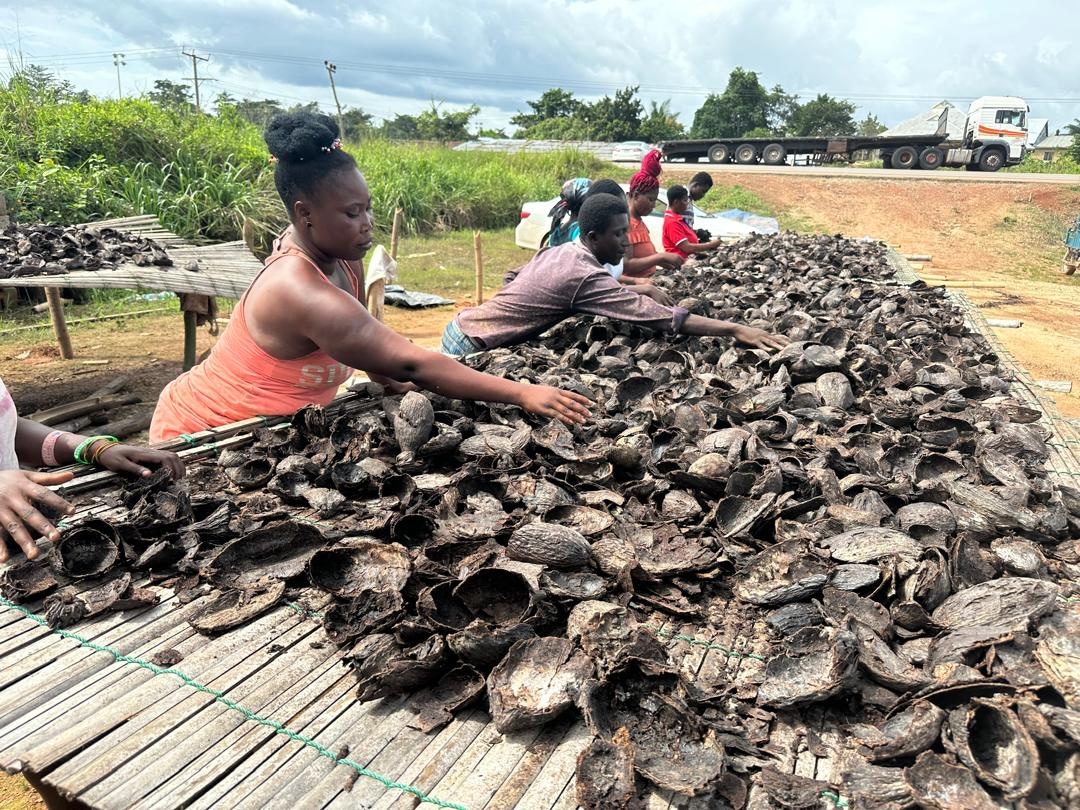Asaase Pa Food Systems Limited, is a rural service center established with support from Solidaridad in 2020 to provide essential farm management services to cocoa farmers. Today, Asaase Pa is leading the way in addressing these environmental challenges stemming from climate change through the production and use of biochar, a climate-smart soil amendment that enhances soil health to boost farm productivity.

In partnership with Tachibana International Ghana Company, a cocoa and ingredients trading company and the organization Planboo, Asaase Pa is converting waste from the processing of cocoa pods into biochar, which balances soil PH, increases porosity leading to better aeration and water retention, increases nutrient retention, contributes to carbon sequestration, and improves crop yields.
“I took 300 bags of biochar from Asaase Pa and applied [them] on my 4-hectare cocoa farm. I noticed a remarkable improvement in soil quality and crop resilience. Even during the dry periods this year, there was still moisture in the soil, which kept my trees fresh and healthy”
Francis Maxwell Oppong, a cocoa farmer in Nkonya in the Western region of Ghana.
Foster Makafui Tattrah of Asaase Pa recounts how the biochar initiative first began to the current point of providing biochar to over 500 farmers for free.
“We discovered biochar online and reached out to Tachibana, who introduced us to a grant opportunity for a pilot project. The success of that pilot has now led us to open two additional biochar production centers.”

This collaboration enabled Tachibana and Planboo to access carbon markets in Europe for the carbon removed through biochar production. To date the project has successfully sold 42 metric tonnes CO₂equivalent on carbon markets and paid more than 4,000 dollars to Asaase Pa. Tachibana is a Certified C-Sink Manager with the capacity to scale biochar projects.
Growing need, growing demand for Biochar
Looking ahead, Asaase Pa plans to scale up its biochar production. It envisions establishing 25 biochar centers across cocoa landscapes in Ghana over the next five years while continuing to offer sustainable solutions to our farmers.
“By integrating innovative solutions like biochar into the cocoa value chain, Asaase Pa and its partners are not only improving the sustainability of cocoa farming but also creating long-term economic opportunities for farmers,” says Hammond Mensah, Cocoa Lead for Solidaridad West Africa.
“The Rural Service Centers remain a vital part of this transformation, proving that with the right support, cocoa farming can be both profitable and sustainable.”


